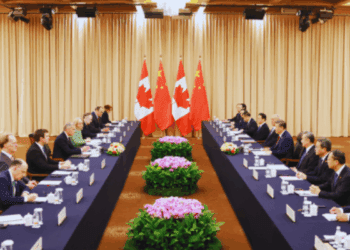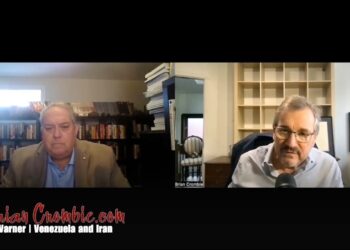MLI’s Senior Fellow, Alex Wilner, looks into the move made by the European Union to blacklist Hezbollah. See the Globe and Mail article below.
Europe’s Hezbollah blacklist is a timely move
ALEX WILNER, The Globe and Mail, Published Friday, July 26, 2013.
On Monday, the European Union finally listed Hezbollah’s military wing as a terrorist organization. The decision, taken unanimously by all 28 members of the EU, reverses years of European intransigence. By comparison, both the the United States and Canada proscribed Hezbollah, in its entirety, years ago (in 1995 and 2002 respectively). Nonetheless, the European decision should be lauded.
The sanctions are a direct result of Hezbollah’s recent miscalculations in Europe and Syria.
First, in 2012, Hezbollah orchestrated terrorist attacks on European soil. Last July, Hezbollah operatives – including a Canadian-Lebanese citizen – bombed a bus carrying Israeli tourists in Burgas, Bulgaria. Five Israelis and their Muslim-Bulgarian bus driver were killed. In February, Bulgarian investigators officially blamed Hezbollah for the attack. The following month a Swedish-Lebanese national, Hossam Yaacoub, was convicted in Cyprus for helping Hezbollah plan similar attacks in that country. Court documents argue that Mr. Yaacoub, a self-confessed member of Hezbollah, “could have potentially endangered Israeli citizens and targets in the Republic.”
In hindsight, it appears that Europe wasn’t the best choice of targets for Hezbollah. Granted, it sought to kill Israelis, but in doing so in Europe it all but forced the EU to react. Both Bulgaria and Cyprus are members of the EU. Their rulings and investigations matter a great deal and could not easily be ignored by other European capitals. Israel, the United States and Canada, too, are reported to have provided European governments with “masses” of intelligence, further illustrating Hezbollah’s European activities. And even Arnold Schwarzenegger is said to have sent the Austrian chancellor a personal letter urging him to support sanctions. On Monday, the diplomatic offensive bore fruit.
Strategically, Hezbollah’s European foray backfired spectacularly. So long as it carried out attacks beyond Europe’s borders, critics of the ban could go on dragging their feet. But once Hezbollah started blowing people up on European soil, few excuses held water. To a certain degree, a ban was almost inevitable.
Second, Hezbollah has recently taken an active role in Syria’s brutal war. Hezbollah leader Hassan Nasrallah now unabashedly supports besieged President Bashar al-Assad. “It is our battle,” he explained recently, “and we are up to it.”
Last month Hezbollah sent thousands of militants to Syria to bolster Mr. Assad’s haggard military. The move paid off. With Hezbollah’s helping hand Syria was able to recapture the rebel stronghold of Qusayr. The military offensive was a turning point for Mr. Assad and marked a clear shift in battlefield momentum. U.S. officials are now suggesting that Mr. Assad’s fall is far from imminent, warning instead that he may retain partial control of Syria for years to come.
Regionally, Hezbollah may have very good reasons for supporting Mr. Assad. Besides Iran, Syria has been Hezbollah’s long-time patron, a source of cash, weapons, and support.
From a European perspective, however, Hezbollah’s reinforcement of the Assad regime was a defining moment. It tipped the scale in favour of proscription. At least part of the reason France, Germany, and others have been hesitant to ban Hezbollah in the past was out of fear of inadvertently destabilizing Lebanon. Hezbollah is a major political player in Beirut and controls part of the Lebanese government. A ban, critics suggested, would have complicated European support for Lebanon and added fuel to an already combustible political system.
But now, by supporting Mr. Assad, Hezbollah is clearly destabilizing Lebanon on its own. The effects of its involvement in Syria are spilling onto Lebanese streets. Threats of sectarian violence loom large. And by actively joining Assad’s killing machine, Hezbollah is complicit in a vicious war that has claimed more than 100,000 deaths. That Hezbollah is exacerbating a humanitarian catastrophe rubs some Europeans the wrong way. Opposition to the organization hardened as a result.
Gauging the effects of the EU decision will take time. Financially, the ban should freeze assets Hezbollah militants have amassed in Europe. The ban will also restrict known Hezbollah militants from travelling to Europe and should pave the way for court proceedings and greater intelligence sharing among EU members. Symbolically, the ban further de-legitimizes Hezbollah. This is important when considering how unpopular the Syrian conflict is among Arabs and Muslims worldwide.
The one remaining wrinkle is the EU’s continued insistence on differentiating between Hezbollah’s political and military wings, a distinction Hezbollah does not make itself. Blacklisting half the organization complicates how the ban will be implemented in practice. But at least Europe is heading in the right direction.
Alex Wilner is a research affiliate with the Munk School of Global Affairs at the University of Toronto and a Senior Fellow at the Macdonald-Laurier Institute in Ottawa.




